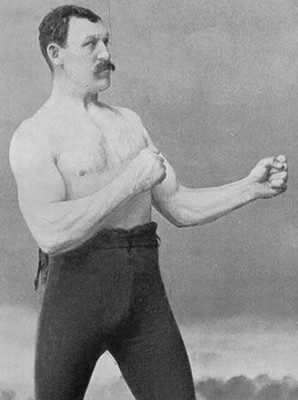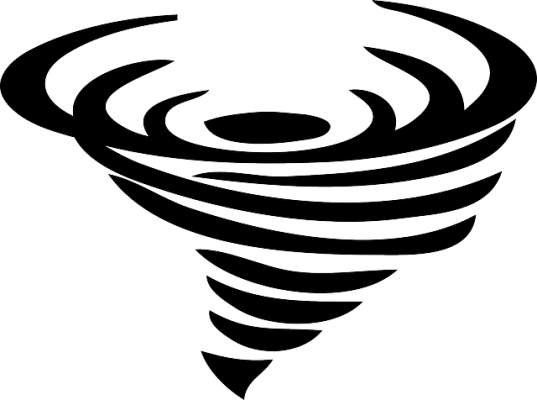Someone asked me if I had watched "The Deep End" - the documentary about Teal Swan. I had never heard of her. I watched the trailer and as soon as I heard her speak, I knew she was full of sh*t. Took me 5-10 seconds.
Then I had someone tell me the kinds of things she has people engage in and I was disgusted. after stating what I saw as the positive purpose of the exercise, I broke down for the person the dynamics and meta-structures of what she was up to in those instances and why one should not do that to participants, and how it is actually counter-productive.
But this is not about her - it is about cults and cult-like communities in general, many of which are far worse and include a lot more systemic pathology. And the exposure of some of them in recent years ... has me thinking about cults and coaches and politics and just how and why people fall for these people, be they gurus or politicians. Which got me thinking about the transformation industry in general.
I try to spend as little time as possible thinking about the coaching and practitioner industry. That might seem strange since I have been in it for so long (full-time since 2004), but honestly, the more I am exposed to it, the more I find myself recoiling. Maybe it is what I perceive as a lack of depth in the industry, or - as a meme one friend sent me the other day said, “God, please give me the confidence of a 25-year-old life coach”. But in contemplating it - and in noticing trends over the 30 years I have been engaged in transformational communities, I have distinguished a few “types”.
These are off the top of my head, so I am open - and welcome - any feedback, comments, or additions. Or for you to share your own experience in encountering these or other categories of “coach”.
✨✨✨✨
🔮The Regurgitator: they parrot the thing they just read, heard, or learned in a workshop and they get it all over everyone. Very little precision, and it often feels very gross (vs subtle) and like a blunt instrument. A lot of projection may be involved. You can contort yourself to see how it fits, but it really has little to do with what is happening for you or your desired outcomes (if they even asked you about that). They also have little apply-to-self or self-reflection.
🔮The Mentor: they have vast experience in one area and teach others how they succeeded (sometimes often after a lot of trial and error or at least one major failure).
🔮The Technician: They are very skilled in a very narrow area - one modality - and it is the only lens they view things through, they are, however, very competent at that one thing.
🔮The Mindset Master: They really have one primary tool: linguistic or perspective reframes. “If you just think about it differently, you’ll feel better”. While this is true - and critical for day-to-day happiness and an integral part of developing facility with self, the problem with this one is if used as the only tool - or over-applied - it often steps over somatic feelings and emotional build-up that will need to eventually be cleared out - and in doing so they stack up in their body and may lead to a massive meltdown of sadness or depression later on. The deeper thing needs to be addressed and often goes unaddressed so they are engaging in bypass or what I heard recently may be termed as “toxic positivity”.
🔮The Synthesizer: they consume all forms of personal development and likely have for some time and then come up with their own version that is an amalgamation or an integration - or new material entirely that builds on what came before. They are also very good at pulling from that experience and applying it at a more individual level for people - choosing the approach or modality that will best serve them in the presenting context at that time. There is both depth and breadth.
🔮The Guru: This one seems to have deep spiritual knowledge and has adoring followers. Their followers' eyes glaze over when they talk about them as if they are under a spell. Sometimes it is unclear what specific value they bring or if the followers integrate the teachings into their lives. People often fall in love with them and at some point, their illusions are shattered and they become very disillusioned. As much as they were in love with them is the degree to which they will now have disdain for them.
The benefit, of course, is the feelings of community and acceptance the student experiences with other followers and the shared experience. Until, of course, the inevitable descent into pathology or cult-like dynamics. Over 80% of them seem to engage in sexual misconduct at some point.
I have a theory that the larger a transformational community becomes, the more it tends toward pathology even if the leader is pure in intention, teaching, and their own personal ethics.
🔮The Scam Artist: This speaks for itself. Some of them just see a way to make money and do not even see themselves as scamming people, but are usually very entitled, charge above market rates for their services out of the gate with little experience, and may even encourage a “wish list” purchase, etc. (like a dominatrix or escort would), including tools for their business they could and should ethically purchase themselves. Often they do month-to-month agreements instead of extended offerings because they either do not have the energetic capacity to hold someone over several months, or are not competent enough to continue with a client beyond the quick sale of the 1-month agreement. Maybe it’s a side gig. One of many. They also get a dopamine hit from being in a position of authority in someone’s life, no matter how fleeting or temporary that may be - and they often come from that place, not from a place of serving their client in achieving their outcomes.
They don’t last long, thankfully.
🔮Professional Scam Artists: Megachurch preachers, Trump, et al. Grifters and con artists all of them. Praying on the old and the feeble-minded.
🔮The Hobbyist: “I give my friends advice all the time, I may as well get paid for it!”. Enough said.
✨There is also the therapist turned coach, which is always interesting - and of great value for some.
✨And on the other end of the spectrum, the young sex worker turned coach (but in a different context). The challenge there is they bring a lot of the dynamics from their previous offerings into the business of coaching and that does not translate well professionally or inter-personally. They essentially have to re-learn business.
--
If you are interested in becoming a clean and skillful practitioner (or a synthesizer) attend my next practitioner certification training. Full details about that training are »here«. If you are curious about working with me one-on-one, schedule an initial conversation »here« to have a conversation and we will discover if we might be a fit or not.
Evolutionary Blog
60 pounds and 8 inches.
That's how much weight and girth around my waist I have shed in the last 15 months. I have gone from a 42-inch waist back down to a 34" waist and I have gone from 265 lbs down to just under 205 today -- while adding a significant amount of muscle mass. And I did so with a fairly relaxed workout routine.
I had gotten fat and what was worse (for me) was that my mental edge and sharpness, as well as my motivation, were dulled and muted. All of that has changed radically in the last 14 - 16 months.
How did I do it? What was the major or primary shift? There were certain things that helped: I eliminated sugars and all grain-based carbohydrates except for the ever-famous "cheat day" once a week. That certainly helped. Ten months ago I chose to stop consuming alcohol -- choosing clarity over self-indulgence. Yes, that has assisted in the process.
But the primary component? Testosterone. Testosterone manages a lot of things: libido and aggression get all the press, but did you know it also impacts drive and motivation, cognitive edge/sharpness, and fat metabolism/retention?
And mood.
Oh, mood.
And even more sadly (no pun intended) many men are being misdiagnosed with clinical depression when they really just have low testosterone levels.
Most people don't realize it, but if you have low testosterone levels you will retain fat--and it will increase your estrogen levels, which then, in turn, has you retain even more fat, which in turn lowers your testosterone even further -- it becomes a hormonal downward spiral.
And here is the kicker: a medical practitioner will often tell a man with very low testosterone that it is "normal" if it is still in the normal range. The range being between 200 and 1100.
200 might be "normal" but it is certainly not optimal.
Disclaimer: I am not a trainer, nutritionist, medical Dr, or practitioner of any kind of medicine nor do I hold myself out as such. I am simply a guy who has done a lot of research on my own and experimented with certain supplements and herbs and gotten my blood tested 4 times in the last year at regular intervals--and I am reporting my findings here for those who want to do their own research.
Let's discuss testosterone, free testosterone, levels, dietary adjustments, and most important of all, supplementation. Henceforth, testosterone will be simply referred to as "T" and free testosterone as "Free T".
Distinctions, Levels, and Ranges
Total T is what most people get measured with the blood tests that are out there--and if your Dr is not a specialist, this is the test they will give you unless you request both Total T and Free T to be tested.
Total T is just what it sounds like: your total levels in your blood. Free T is a test to see how much is bio-available; how much of your T is floating around available to be put to use at any given moment.
What is a "normal" range? Depends on which lab you ask, but there is some overlap. Some labs will say that a "normal" Total T level is between 200 and 1,300 ng/dl (nanograms per deciliter). Others say it is between 300 and 1300. The normal range for Free T is murkier because of the different tests that different laboratories use. Here is a set of ranges from a forum I was involved in for a while:
Consequently, if your doctor tests your free testosterone, be sure you know the analytical method used. If your test results have a reference range as follows, you have probably been tested with one of the other test methods:
::: ::: :::
Now back to you.
"Falling in love is the greatest story of addiction in existence." -Philippe Lewis I toyed with this idea for years. Along with the idea that all romantic love is delusion. Delusion and addiction. Why else does "absence make the heart grow fonder" if not because you aren't dealing with the reality of who they are - but rather who you imagine them t...
Copyright
© © 2017 Jason D McClain, World-Wide Rights Reserved.
Be sure that you've read Part 1 » here «.
[Note to the reader: "God" is used throughout as a signifier to point to wherever you put your worship. It could be conventional religions as I will mainly address, but you could just as easily replace it with Gaia if you "put your worship" there--if the environment is your ultimate concern. or you could replace it with polytheistic beliefs such as Hinduism. Or maybe you put your worship in the Universe, consciousness, or Community. Consider that whatever your ultimate concern is, the concepts in this article can apply to that thing as "God" for you. Doing this will allow you to get the most from this article. -Jason D McClain]
As I asked in Part 1:
"...was Jesus really born of the Virgin Mary? Was Lao Tzu really born as a 900 year-old man? Is the earth really resting on the head of a giant serpent (or the shell of a giant tortoise)? And of course, the subject of great debate most recently it seems: is the Earth really only 6,000 years old? Are these facts—with belief in them required to enter into the afterlife? Or are they gorgeous and useful poetic metaphors pointing to a greater truth in a way that people at the time could accept, pointing to Divine power?"
These metaphors are a testament to the belief in stunningly powerful, mystical, and magical forces embodied in "Spirit". Stories told to the good common folk of those eras. Metaphors they could relate to. This was useful and good—in fact, it could have been no other way at the time. However, the vast majority that count themselves among the world’s religions have lost touch with this simple wisdom: that metaphors of their spiritual traditions do indeed hold tremendous aesthetic value and inspirational mythopoetic beauty, however, they are not the Truths themselves.
Nor should they really matter when discussing spiritual merit. Would we say someone was not a good person if they acted with love, grace and charity all of their life, dedicated to the service of others, but rejected the idea of the Virgin Birth? Of course not.
Sadly, focusing on the details of the metaphoric stories as a basis for “faith” rather than the individual relationship with the Universal Truths results in losing access to Divinity and Spirit. Ending up, in turn, hopelessly (and endlessly) arguing over details of form and presentation-details of stories told long ago so that simple people could easily have access to God. These arguments aren’t just friendly disagreements or intellectual debates engaged in among scholars; they have split families and divided congregations--and sent nations to war on too many occasions for us to want to list here.
The fact that this is so, and that is springs from traditions that were and are meant to free the spirit, spread love, and acceptance, and give hope to the hopeless, is no less than tragic.
So that we can attempt to avoid the same pitfalls, let us set aside what is “true” or “false” about these mythopoetic themes and focus instead on the more personal and individual experience. This is what is relevant for our discussion that is focused on the context of personal evolution.
For that, we need to address not the truth, but the utility of our relationship to the Divine--"to" vs. "with." This “to vs with” business is not just fun with prepositions. It has a very practical impact on our internal life and emotional experience.
The manner in which we relate to anything determines its meaning and importance in our lives. Whether that thing is a significant other, a new career opportunity, a rainy day, traffic on the highway, and/or yes, even “God”. Perhaps we should even say In fact, especially God—not because that is accurate, but simply because of the impact that our personal relationship with God has on our real-life happiness.
Let’s take traffic.
We have all experienced traffic on a highway. How do you relate to it? What is your interpretation of it? Do you view it as a waste of time? A hassle? An increase in vehicular pollution? Or perhaps you see it as a welcome break and use it to unwind on your way home listening to relaxing music or an opportunity to listen to a favorite book on audio? The obvious point is that how you “hold” this experience we call “traffic” in your subjective world will give rise to a specific and tangible emotional experience around it, or what we will call an “atmosphere”.
“It is never the thing itself, but rather your relationship to it”.
Knowing that let’s take it out another level: it is not just how you relate “to” traffic that will determine your experience. While this is true, we could take one more step and realize that we are not just in traffic--if you are in your car in the middle of traffic, you are the traffic. You are at the very least a component part of it as a whole.
Think about that the next time you are cursing the traffic you are in.
You can see what we have done there, and you are likely already familiar with the importance of and the ability to “frame” your experience described in the above paragraphs. This is nothing new. Most of the wisdom traditions teach that how you interpret an event will determine your emotional experience around it—and with regular practice, you can discipline your mind to interpret your experience in a way that leads you to have the emotional experience of life that you desire. Simple. Not easy, but simple.
And yet, when we get to the context of God—we go all whacky. As if it somehow no longer applies.
Just as we examined if your relationship to traffic serves you, we will examine the same of your relationship to God.
I was with a client and we chased the source of his "issue" to a particular construction he has of God—and God and spirituality is very important to him.





